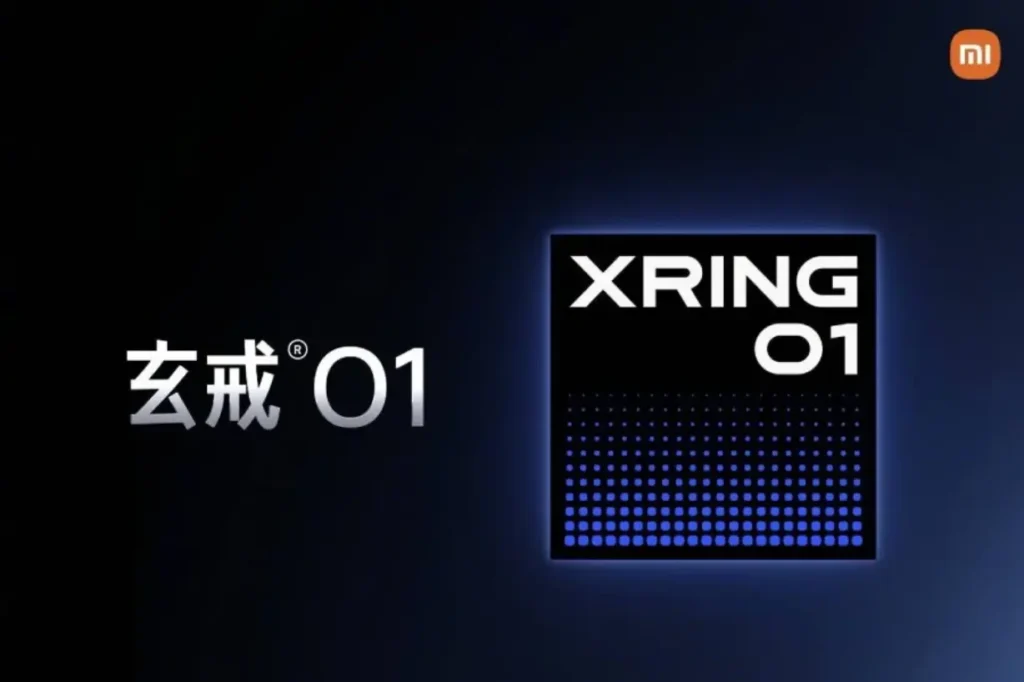Xiaomi New Automotive Chip Patent: Driving Innovation in EVs
Xiaomi Automotive Chip Breakthrough: A New Patent and the Future of Smart Mobility
Xiaomi, a global tech giant renowned for its smartphones and smart home devices, is making significant strides in the automotive sector. This article delves into the recent authorization of a crucial patent for an automotive-focused chip, marking a pivotal moment in Xiaomi’s ambitious strategy to become a major player in the electric vehicle (EV) market. We’ll explore the technical details of this innovative chip, its implications for the Xiaomi SU7 and future vehicles, and Xiaomi’s overall strategy in the rapidly evolving automotive landscape. Xiaomi New Automotive Chip Patent.

Xiaomi’s Bold Bet on In-House Chip Development
Xiaomi’s journey into chip design began with the launch of its own chips, XringO1 and T1, at its 15th-anniversary conference. XringO1, a 3nm process-based chip, targets the smartphone market, while T1 is designed for smartwatches. These releases demonstrated Xiaomi’s commitment to vertical integration and its ability to compete with established semiconductor giants like TSMC, Qualcomm, and MediaTek. However, CEO Lei Jun has emphasized that this is just the beginning. The company’s sights are firmly set on the automotive industry, a strategic move following the successful launch of its first EV, the Xiaomi SU7, in 2024. This vehicle, boasting futuristic design, competitive performance, and a seamless connected ecosystem, instantly positioned Xiaomi as a serious contender in the EV race. The development of a dedicated automotive chip represents the next logical step, further optimizing the integration of hardware and software within its vehicles.
Xiaomi’s New Automotive Chip Patent: Optimizing Performance and Efficiency
On July 31st, 2024, Xiaomi Automobile Technology Co., Ltd. filed a patent titled “Method of chip booting, system-level chip and vehicle,” which has recently been approved, as reported by Chinese tech news outlet IT Home. This patent, valid until July 31st, 2044, details a method to dramatically optimize the booting process of system-on-a-chip (SoC) components, significantly reducing startup time and energy consumption. This innovation promises to enhance the user experience in vehicles and other devices equipped with these chips.

Technical Details of the Patent
The patented method focuses on streamlining the boot process of system-level chips (SoCs), essential components in modern vehicles that integrate processors, memory, and other elements required to run complex operating systems. These systems manage autonomous driving features, connectivity, and infotainment interfaces. The patent’s core innovations include:
- Reduced Boot Time: Optimized algorithms enable faster chip operation, crucial for automotive systems where immediate responsiveness is paramount (e.g., vehicle startup or activation of driver-assistance systems).
- Decreased Energy Consumption: Minimizing energy use during startup contributes to improved energy efficiency, a key factor in EVs where maximizing range is critical.
- Enhanced User Experience: Faster and more efficient booting translates to smoother interaction with vehicle systems, including touchscreens, voice assistants, and connectivity features.
This patent underscores Xiaomi’s commitment to vertical integration, controlling both the hardware and software for a more cohesive user experience.
The Role of Chips in Xiaomi’s Automotive Strategy
Lei Jun, during a Xiaomi investor conference, confirmed the high priority given to automotive chips. CNBC reported that Xiaomi plans substantial investment in research and development to solidify its position in the fiercely competitive EV market, where it competes against giants like Tesla, BYD, and NIO. In-house chip development reduces reliance on external suppliers and allows Xiaomi to tailor solutions to its vehicles’ specific needs.
The Xiaomi SU7, launched in 2024, already incorporates advanced technologies like the HyperOS operating system, connecting the vehicle seamlessly with other Xiaomi devices such as smartphones and smart home appliances. A proprietary automotive chip could further optimize this ecosystem, enhancing the performance of:
- Autonomous Driving: Real-time processing of sensor and camera data.
- Infotainment: Fluid and customizable user interfaces.
- 5G Connectivity: Integration with cloud services and over-the-air (OTA) updates.
- Energy Efficiency: Optimized management of the battery and other vehicle systems.
Reuters analysis suggests that developing its own chips could also help Xiaomi mitigate risks associated with global semiconductor shortages, a problem that has significantly impacted the automotive industry in recent years.

Xiaomi in the Automotive Market: A Growing Competitor
The EV market is booming, projected to grow at an annual rate of 18.8% until 2030 (Statista). China, the world’s largest EV market, provides an ideal launchpad for Xiaomi to leverage its consumer technology expertise and loyal customer base. Bloomberg reported that Xiaomi has invested over 10 billion yuan (approximately $1.4 billion USD) in its automotive division since 2021.
The SU7 has been well-received, with over 50,000 orders in its first months (SCMP, citing Xiaomi data). However, maintaining competitiveness requires differentiation in a crowded market. Proprietary chips, like the one detailed in the new patent, are a strategic step toward achieving this.
Future Implications of Xiaomi’s Automotive Chip Development
Xiaomi’s development of automotive chips has significant implications:
- Technological Independence: Designing its own chips reduces reliance on suppliers like Qualcomm or NVIDIA, potentially leading to lower costs and greater flexibility.
- Customization: Proprietary chips enable Xiaomi to tailor hardware to its vehicles’ specific needs, improving integration with HyperOS and other services.
- Global Competitiveness: Optimized chips allow Xiaomi to offer more efficient and technologically advanced vehicles, attracting consumers in international markets.
Xiaomi is not alone in this race; companies like Huawei and Apple are also developing automotive chips, indicating that hardware control will be a key differentiator in the next generation of EVs.
Conclusion
The approval of Xiaomi’s automotive chip patent signifies another step toward its ambitious goal of becoming a leader in the electric vehicle industry. With XringO1 and T1 already on the market and a dedicated automotive chip on the horizon, Xiaomi is building a robust technological ecosystem that seamlessly integrates hardware, software, and connectivity. This approach not only strengthens its market position but also sets a precedent for other tech companies looking to diversify into the automotive sector. The future of smart mobility is rapidly approaching, and Xiaomi is driving the innovation.






